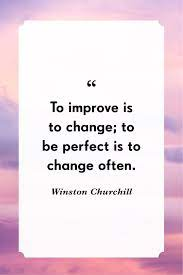1) Associate your desired changes with distinctive states of mind and body - Perhaps the most important finding from the aforementioned review was that change is much more likely to last if it is accompanied by shifts in emotional experiencing. In counseling and therapy, for example, people are most likely to change and hold onto their changes if they are frustrated by their old patterns and enthusiastically involved in the change process. Simple talk with a coach or counselor, in itself, is not enough. It's when we acutely feel the need for change and are eagerly involved in making changes that we are most likely to internalize new ways of doing and viewing. I recently spoke with my grandson, Ed, who has made a daily commitment to hitting the gym and engaging in rigorous workouts. Interestingly, as his body has developed, so has his mindset. In the pumped up state, he internalizes a new sense of himself--and that carries over to many areas of his life. Similarly, traders I've worked with have reached out to teammates and peers to make a new process a shared experience, creating a fresh social/interactive source of motivation. Energized by the experience of mutual discovery, those traders find themselves more focused and energized in their trading.
2) Integrate your desired changes into your daily routine - Ultimately, we want to turn our changes into positive habit patterns, so that we don't have to rely on motivation to do the right things. What I have found most helpful is to make my desired actions a part of my early morning routine, so that each day begins as a change experience. Suppose, for instance, that we wanted to develop ourselves spiritually. Simply thinking spiritual things or reading spiritual texts won't necessarily help us internalize our own spirituality. Engaging in active prayer or meditation each morning, on the other hand, provides us with a daily, positive, soul-full experience. Similarly, if we want to become a more caring and loving family member, we have to go beyond good intentions and thoughts and actively set aside time each day for quality time with our loved ones. Yes, I wake up early in the morning and give my cats food and water and hugs because I love them, but it's equally true that I love them because I spend committed time with them each day. We become what we do. A great way to make large changes is to make small changes consistently and build on those.
3) Keep doing new things - Routine is necessary to build positive habit patterns, but life becomes stale when it is dominated by routine. Yes, we have reliable and consistent trading processes--and we need those--but we grow when we tackle fresh ways of trading, new markets, and different strategies. Of course, we engage in those new efforts with small size initially so that we can survive our learning curves, but the joy of discovery and learning pays significant dividends that energize all of our work. When we make innovation part of our personal and professional lives, we engage in an evolutionary process, where each new thing that we do is a "mutation". Many of these novelties will not have adaptive value--hence the wisdom of "fail fast"--but the few that thrive will sustain our development and become springboards for yet further innovations. Imagine tackling one innovation each week. If only 10% of those efforts prove useful in the long run, we will have gained five profitable additions to our trading. There are other benefits as well. Psychologically, the excitement of discovery provides us with the fuel to sustain new learning and, over time, enables us to internalize a sense of creativity and productivity.
There is so much more to changing our lives--and our trading--than writing in a journal and adding items to our "to-do" lists. Expanding our routine keeps us locked in routine. Change comes from fresh experience: it's a function of doing new things in new ways and regularly reshaping our routines. To build on Churchill's insight above, to change often--and find our perfection--we must live life creatively.
Further Reading:
.





